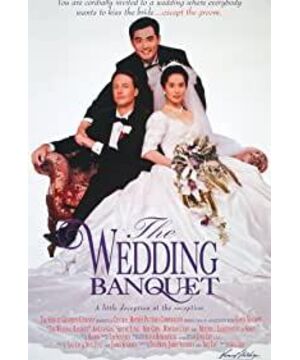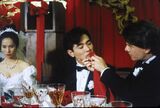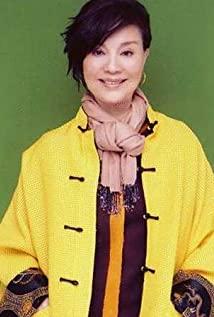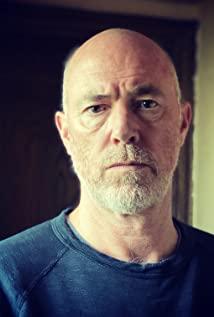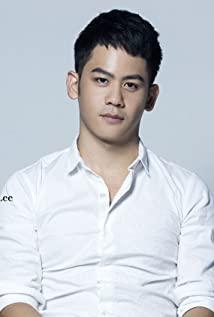1. When Dad Gao first arrived in New York, Wei Tong and Wei Wei went to pick up the plane. After coming out of the airport, Gao's mother asked Gao's father, what do you think? Father Gao replied, "Okay, it can be born and raised. At first glance, there is nothing wrong with it, but after thinking about it, the general answer to a daughter-in-law who has just met and helped to move things enthusiastically is, yes, she is beautiful and virtuous. But if you answer according to the general routine, this scene seems to be dispensable. Therefore, what Dad Gao said about being able to live and support seems to indicate that Dad Gao's main focus on women is to inherit the lineage, rather than other women's added value such as beauty and virtuousness that other men pay more attention to.
2. Dad Gao told Weitong about the past and joined the army in order to escape from marriage. Before liberation, most of the marriages were arranged by the family. The Gao family should be a big local family, and the daughter-in-law they arranged was definitely not bad. Some people say that thoughtful young people at that time all wanted to fall in love freely, like Xu Zhimo and so on. This is a partial generalization. First of all, I hope that the new young people who are free to love have one thing in common, that is, they have the experience of studying abroad, have a deep influence on Western ideas, and have met many women with higher education, so they cannot accept the old women arranged with their families. When it comes to falling in love, from the point of view of Gao's father's English fur being a post-learner, there should be no study abroad experience, and no direct inducement to germinate a strong desire for free love. Secondly, even if Gao’s father learned about the new culture and new thoughts through newspapers and magazines, he should not have such a strong motivation to leave home and escape from marriage. After all, he grew up in a traditional family in the old society, romantic like Xu Zhimo, progress like Lu Xun, and the life of his parents. The matchmaker's words can't be defied either. It's nothing more than a bad relationship with the original spouse, divorce later, or finding another lover outside. Therefore, Gao's father directly disobeyed his father's order and ran away from the marriage, which was rather strange.
3. Mama Gao gave Weiwei a variety of gifts, one by one. In the end, Weiwei thought she was finished and got up. Mama Gao found another piece, saying it was a gold bracelet from Lao Zhang. The bracelets are usually given by the elders in the family. Lao Zhang is only the chef and housekeeper of the Gao family, which seems inappropriate. Of course, it makes sense that Lao Zhang has been in the Gao family for more than 40 years. (However, it is normal for subordinates in the military to be treated as families by the chief, but they generally don’t really regard themselves as family members and elders. In contrast, Lao Chen, an old subordinate who runs a restaurant, has driven Dad Gao’s car for more than 20 years. I watched Weitong grow up, and the friendship was deep enough. I still respected the teachers and called Weitong a big young master.)
4. At the dinner table after Gao's father was discharged from the hospital, Gao's mother said that this was cooked by Simon. At this time, Dad Gao had long known the relationship between Simon and Wei Tong. After dinner, he said, "I wash dishes when Simon cooks." I don't quite understand this paragraph. In Chinese culture, it seems that there is no such thing as a new daughter-in-law cooking and father-in-law washing dishes, right? So why does Dad Gao insist on washing dishes? Seeing someone say that it was Lao Zhang who had been cooking for so many years and that he hadn't washed the dishes, he felt guilty and made up for it silently. Although it's a joke, it's not unreasonable haha.
5. Weiwei and Gao's mother looked at old photos together. It seems that there are many group photos of Gao's father and Lao Zhang when they were young.
6. Back at the beginning, Gao's mother sent a tape, saying that Gao's father became very strange after he retired. During the day, he could only take care of her and Lao Zhang at home, and he became very sensitive and became more and more difficult to serve. I think that after Wei Wei moved in, the three of them lived together, and the relationship between Wei Tong and Simon became more and more tense. So, did Dad Gao become more and more sensitive and irritable because he didn't have to go out to work after retirement and was at home all day, making it too difficult to balance his relationship with Mom Gao and Lao Zhang?
Finally, assuming that there is no relationship between Dad Gao and Uncle Zhang, it seems that the setting of this character is redundant? The existence of Uncle Zhang is completely irrelevant to the progress of the plot. Will the great director Ang Lee superfluous? Of course, this is all speculation after watching the movie, and I haven't checked whether the director has publicly commented on it.
PS: Dad Gao may have seen Simon for the first time, and found out that something was wrong as soon as he entered the door. I don’t know if this is the director’s loophole or Wei Tong’s loophole. Wei Tong is only a tenant, and Simon is the landlord. It is understandable that Wei Tong hangs his father’s calligraphy in his room, but even the main living room is covered with calligraphy. According to the traditional Chinese cultural decoration, it is not correct to explain that the relationship between the landlord and the tenant is not normal?
View more about The Wedding Banquet reviews


